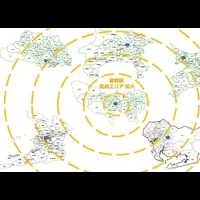
Datamaran's New Report Reveals Trends in European CSRD Compliance
Uncovering Key Trends in CSRD Reports by Datamaran
In a significant breakthrough in corporate sustainability reporting, Datamaran has released its latest research report, titled "CSRD Reports Uncovered: Insights from a Detailed Analysis of 11,000+ IROs from 300+ Companies." This unprecedented study provides an in-depth look into how over 300 companies across Europe are responding to the Corporate Sustainability Reporting Directive (CSRD). The report analyzes more than 11,000 Impact, Risk, and Opportunity (IRO) statements, presenting a comprehensive view of company disclosures around sustainability and compliance.
Key Findings
Through rigorous analysis, Datamaran's research highlights several key insights and trends within corporate sustainability reporting:
1. Negative Impacts Dominate: The analysis revealed that negative impacts significantly exceed opportunities, with negative impacts constituting 37% of total IROs while opportunities only account for 13%. This trend suggests that companies are adapting cautiously to the changing regulatory environment, which emphasizes prudence in their sustainability practices.
2. Focus Areas of Disclosure: Core subjects like Climate Change (E1), Own Workforce (S1), and Business Conduct (G1) were reported by nearly all participating companies, with disclosure rates of 99%, 98%, and 92% respectively. Conversely, themes such as Affected Communities (S3), Water (E3), and Biodiversity (E4) were mentioned in merely 36%, 37%, and 44% of reports. This discrepancy indicates a possible oversight in considering the broader impacts of corporate actions.
3. Consistency in Reporting Length: On average, CSRD statements comprised about 103 pages, a figure that has remained steady from the pre-CSRD average, indicating that the length of reports is not significantly escalating even as reporting demands evolve. However, companies vary widely in the number of IROs disclosed, with amounts ranging from 6 to 130, showing differing approaches to materiality thresholds.
4. Application of ESRS Standards: Companies identified an average of 6 out of the 10 European Sustainability Reporting Standards (ESRS) as material. Despite the indication of widespread application of double materiality perspectives, only 14% of the companies included any entity-specific IROs in their disclosures.
Marjella Lecourt-Alma, CEO and co-founder of Datamaran, remarked, “As the CSRD sets a new standard for transparency and accountability, our analysis shows that most companies are still developing their capacity for ongoing, data-driven management. This report gives corporate leaders a valuable benchmark as they strive to transition from compliance to competitive advantage.”
With sustainability reports sourced from 304 companies operating across 21 nations and spanning 57 industries—published between January and April 2025—this report serves as a crucial tool for corporate leaders seeking to understand evolving trends in sustainability reporting.
As businesses brace for regulatory shifts and market demands for accountability heighten, insights from this report will empower companies to recognize material risks and opportunities, enabling a proactive approach within their sustainability frameworks.
The call to action for managers and executives is clear: adapting swiftly to the complexities of sustainability reporting is no longer optional. Continuous engagement with sustainability strategies, driven by data insights, is imperative for establishing a competitive position in an increasingly conscientious market.
To delve into the full findings of the report or access detailed analysis, individuals are encouraged to download the complete document from Datamaran's website.
Topics Business Technology)










【About Using Articles】
You can freely use the title and article content by linking to the page where the article is posted.
※ Images cannot be used.
【About Links】
Links are free to use.